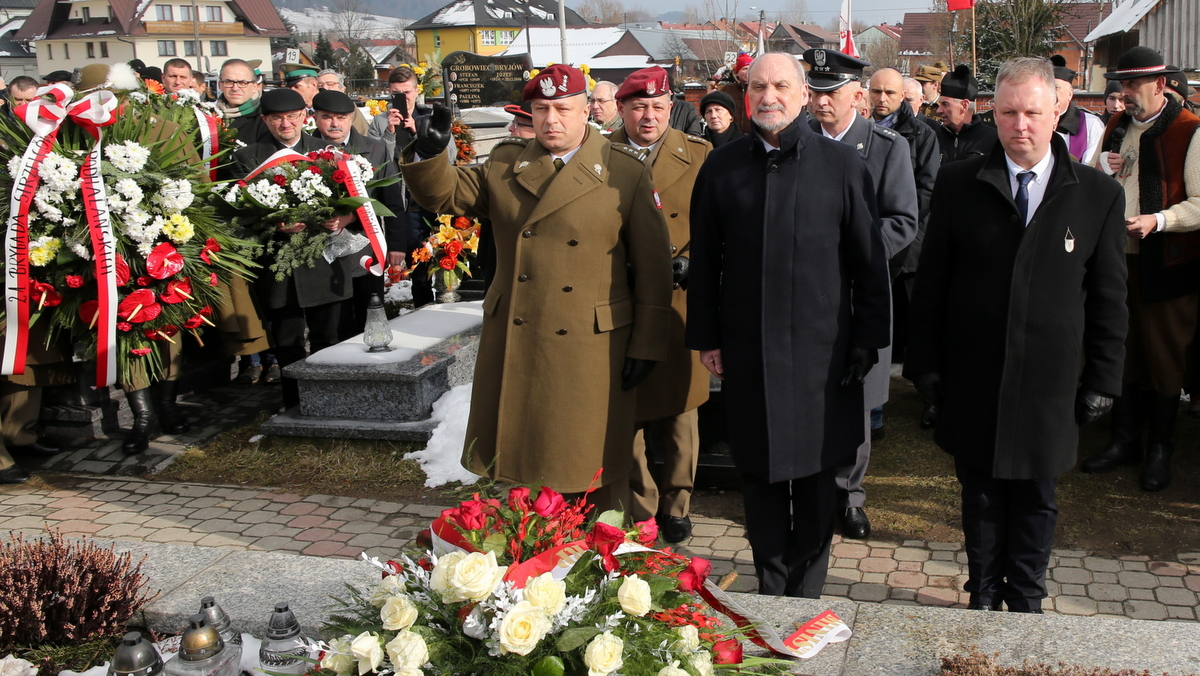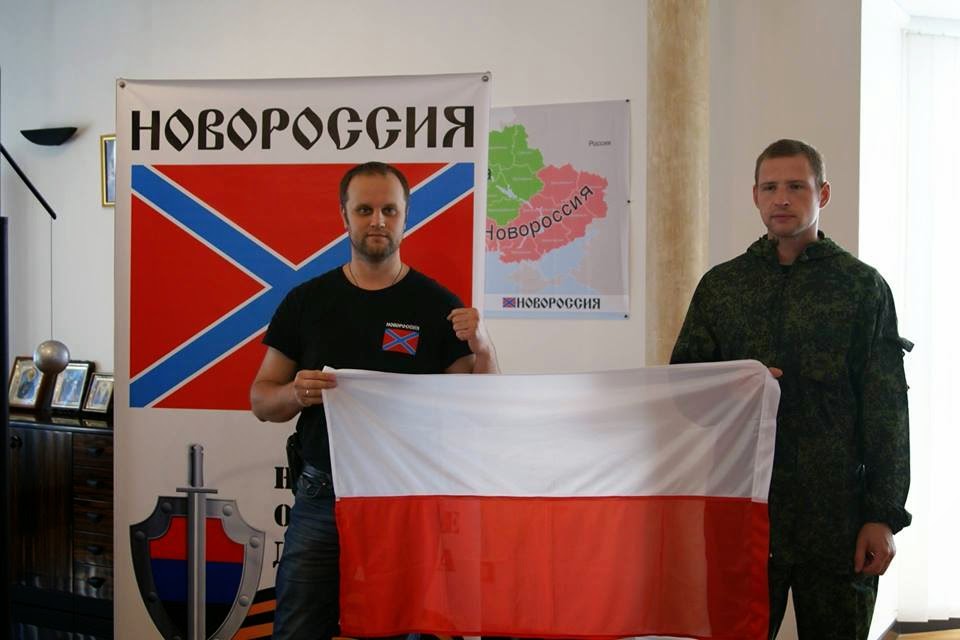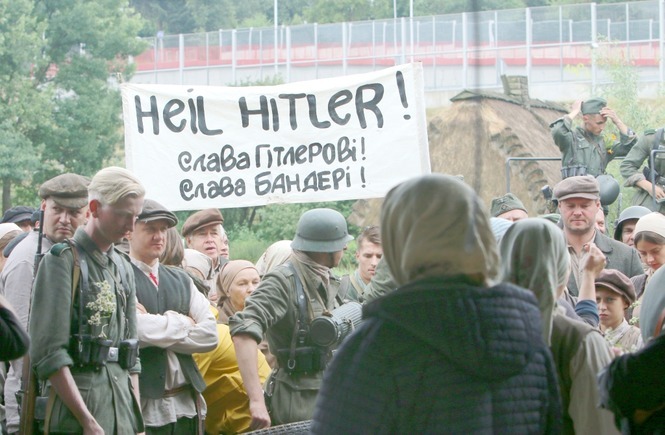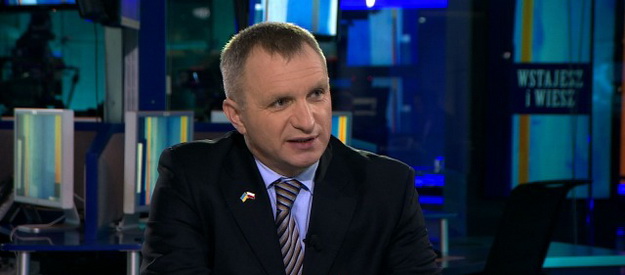On changes for Ukrainian minorities after change of government
In the Polish government, there are people who have been dedicated to cooperation with the Eastern neighbors for years. However, in the ruling coalition, among the parliament members, among media managers, and lower level officials, there are people with openly anti-Ukrainian views. There are clashes within the ruling party and who knows which faction wins.
We see very clear signals in support of Ukraine from the Foreign Minister and Defense Minister. The ruling party has such Sejm deputies as Malgorzata Gosiewska, who prepared a report about Russia’s crimes in Donbas. However, there is also senator Jan Zaryn or Michal Dworczyk, who use sharp and irreconcilable language when commenting on the historical past, specifically the massacre of the Poles in Volyn and Halychyna.
Read also: Kremlin trolls are engaged in massive anti-Ukrainian propaganda in Poland
Speaking about parliamentary cooperation, there are changes for Ukrainians. The Ukrainian minority doesn’t have a representative in the Parliament any more, unlike during two previous cadences. Moreover, none of the candidates from the ethnic minorities nominated by the Civic Platform and Nowoczesna parties entered the Parliament.
Another dimension is the Sejm Commission of National and Ethnic Minorities. Now there is only one deputy there and it’s a representative of the German minority, whilst before there were Ukrainian and Belarus representatives. Of course, it will reflect on the work of this commission.
For example, when Ukrainian entombments and memorials on Polish territories were destroyed, we called to convene an extraordinary session of the commission, but with no success. Which means that mechanisms of instant reaction in the Parliament Commission of National and Ethnic Minorities now work poorly.
This happens because the ruling coalition doesn’t take the issue of the national minorities as a priority. This is the key difference with the previous cadences, when the topic of minorities, people of different orientations, and religions was very sensitive.
On ethnic policies
Another noticeable thing is a strong ethno-national vector in the media. All state bodies are involved in covering the part of the Polish historical heritage that is called Anti-communist Underground of the postwar period, so-called “cursed soldiers.”
However, crimes committed by this underground, specifically against the national minorities, are not taken into account or are justified. During the previous years, the authorities took these difficulties into consideration and didn’t call people with blood on their hands heroes.
Now it’s different. For example, in southern Poland inhabited by the Slovak minority, Jozef Kuras aka “Ogien” was proclaimed a hero and Polish Defense Minister took part in the honoring ceremony. He has killings of Slovaks and Jews on his conscience.

Photo: PAP/Grzegorz Momot
Another example of a similar glorification is mayor Lupaszka, whose soldiers “pacified” [Polish policy aimed at violent reconciliation of the national minorities – Ed.] a Lithuanian village. In one of the regions of Podlasie president Duda was close to patronage over honoring one of the Anti-communist Underground commanders who committed crimes against the Orthodox people.
In the end, the President didn’t join it, but a part of the church hierarchy, media, and far right organizations saw a green light for such actions. Therefore, we see the beginning of quite strong negative attitudes addressed against the minorities.
On mutual vandalism of graves
Vandalism against Ukrainian graves is a recent phenomenon. We documented each such case but received a response from the prosecutor’s office that the graves were illegal entombments (which is not true). Even more, the Polish criminal code states, that desecration of graves is a criminal offense.
Besides, usually the video of these provocations first appears on the Novorossiya Today website and other “separatist” sites [propaganda websites run by the Russian hybrid military force in the Donbas – Ed.]. Turns out that the state isn’t reacting adequately to the provocations of the pro-Russian forces threatening its security.
Even since the 1990s, when sharp Ukrainian-Polish clashes in the border areas took place, a Russian presence was noticeable there. In the recent case of the desecration of Ukrainian graves, Polish organizations that don’t hide their pro-Russian position were involved.

Ultimately, they directly declare: we will destroy everything from the “banderites” [“banderites” is a slur for Ukrainians originating from the name of Ukrainian nationalist leader Stepan Bandera – Ed.]. For example, a destroyed monument in Hrushovychi now bears the inscription “Death to executioners of Volyn and Donbas.” We don’t know if there has been any case opened against any of them.
Read also: Pro-Russian activism of Mateusz Piskorski, detained in Poland
We need to remember that there are over 100 illegal Polish entombments on Ukrainian territory. If in response to the provocations in Poland, similar desecrations of graves will take place in Ukraine, later it will be very difficult to stop emotions.
On historical policies
11 July in Poland is a symbolic date which is considered the apogee of Ukrainian crimes against the Polish population in Volyn in 1943. Now there are two proposals of establishing a holiday of martyrdom of the Poles on kresy [Eastern borderlands – Ed.] in the Parliament. It means that German [Nazi German – Ed.] and Soviet crimes, as well as crimes of Ukrainian nationalists will be presented on the same level, which may cause even bigger anti-Ukrainian hysteria every year.
Related: Ukrainians call upon Poles to establish mutual Day of Remembrance for Volyn tragedy victims
Another important date in front of us is 7 October, when the film Volyn by Wojciech Smarzowski will be released. The film may cause a wave of anti-Ukrainian attitudes. The question now is, whether the Polish state will react to anti-Ukrainian manifestations, caused by this film?
Related: Polish religious leaders support Ukrainian letter of repentance for Volyn

None of the cases resulted in the crimes being investigated, though they often happened in the border zone, where control is much stronger. This proves that the state started conniving at such actions.
Read also: Ukraine and Poland to investigate Volyn tragedy in joint historical commission
Now the question about historical past is highly discussed, so we can’t just distance ourselves with the phrase “let’s leave history to the historians.” We need to seek other ways of continuing a dialog, bring up scientific research, present our point of view at these events. If we see that the other side doesn’t accept our layout, we need to search for intersection points. We need to offer a formula that is at least partially acceptable for the Polish side.
Also, Ukraine needs to demonstrate that the Polish side didn’t succeed in everything. Recently, one participant of a meeting of a Consultative committee of presidents of Poland and Ukraine told me (unofficially), that during the last meeting the Ukrainian side hasn’t raised the question of opening a monument to Ukrainians that died in 1944 in the village Sahryn in Holmschyna. Polish underground killed up to 800 Ukrainians there, including women and children. Ukraine put a monument there in 2009 but it was never officially unveiled.
This monument was supposed to be opened by presidents of both countries. However, for some reason, Ukraine hesitates to raise this question. We can’t give away the historical field to the other side!
We can also take the town Lantsut, where for 18 years Ukraine has been rebuilding a monument to members of the Petlura army, Poland’s allies in the war against the Bolsheviks, who are buried there. This is a unique occasion to demonstrate positive about Ukrainian and Polish cooperation, about Ukrainian participation in defending Poland.
Related:
- The Volyn Tragedy: Reconciliation or Confrontation?
- Polish religious leaders support Ukrainian letter of repentance for Volyn
- Ukrainians call upon Poles to establish mutual Day of Remembrance for Volyn tragedy victims
- Ukraine and Poland to investigate Volyn tragedy in joint historical commission
- Kremlin trolls are engaged in massive anti-Ukrainian propaganda in Poland
- Pro-Russian activism of Mateusz Piskorski, detained in Poland





